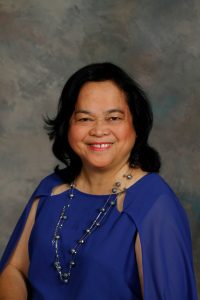Fil-Cans react to crisis
Fil-Cans react to crisis
By Irish Mae Silvestre
The Philipipne Reporter
It’s a sign of a community on edge: practicing social distancing, financial worries and concerns about the situation in the Philippines. As shock gives way to a new reality, we asked Filipino-Canadians how the pandemic has affected them in ways big and small.

Editha and Benito Africa, realtor and truck driver
• Husband and wife Editha and Benito Africa, a realtor and truck driver
• Monica Aves, a full-time teachers college student
• Flordeliz Dandal, executive director, Kababayan Multicultural Centre (KBC)
• Resty del Rosario, president of Kalayaan Cultural Community Centre
• Amie Tolentino, a retiree
* * * * *
The Philippine Reporter: What are your thoughts on Mayor Tory’s announcement to close nonessential businesses?
Aves: It’s the right call but we also have to think about those who are self-employed and run these nonessential businesses.
Dandal: It’s an excellent idea as per the advice of Dr. Eileen De Villa. China’s complete lockdown is key to their recovery from the pandemic. We should utilize the lessons from them.
Tolentino: Since there’s no cure yet, closures are one way to control the spread. It’s not even a war. We don’t even have weapons so we’re like sitting ducks.
TPR: What do you think about the way the Canadian government is handling the pandemic?
Editha Africa: Government aid will take time. While it hasn’t hit the rental market yet, everyone will be affected.

Flordeliz Dandal, executive director, Kababayan Multicultural Centre
Dandal: All levels of the government are doing an excellent job. Daily updates on their courses of action provide calm in the midst of a crisis. We hope that the financial provision of the federal government will provide the early recovery of Canada’s economy once we are past this pandemic crisis.
Del Rosario: They’re dealing with the problem very well, but the financial help may not make it in time for employees who lost their income almost immediately after the closure. Payment deferrals are welcome steps to help people.
Tolentino: Our government is doing all it can to support us and keep us safe however, we need to be proactive.
TPR: How has this situation impacted your life financially?
Editha Africa: I’m trying to fully retire so I’ve already been trying to live on minimal income, but the situation is going to get worse so I’m worried.
Aves: Luckily, the company I work for continues to pay us while we’re closed.
Tolentino: Financially, it’s going to be a stretched budget. I hope the situation gets better soon before my budget snaps.
TPR: And socially?
Editha Africa: My 88-year-old mother is in a senior home near a hospital. She decided to stay there. We call each other to talk about what’s on TV. I know she’s nervous even if she doesn’t say so.

Monica Aves, full-time teachers college student
Aves: As a full-time student in teacher’s college who’s supposed to graduate in June, I’m affected. My classmates and I are hoping to finish our requirements before the end of April so that we can graduate in June.
Dandal: We now attend mass at home by watching the service on TV, but I miss singing in my church choir. Although our office is closed, clients can call us at (416) 633-5056 or e-mail us ed@kababayan.org.
Del Rosario: I miss interacting with people. Two weeks ago, we closed Kalayaan Centre and suspended all programs. We instructed our cleaners to clean the centre and sanitize it.
Tolentino: I miss my grandsons and going to church. I already avoided attending yoga, tai chi and ballroom/line dancing classes.
TPR: What do you think of the situation in the Philippines?
Benito Africa: My brother who owns an asphalt construction business closed the company and gave employees their thirteen-month pay.
Editha Africa: People in impoverished areas live in such small spaces that, once they’re infected, who knows the magnitude of how much this disease will spread.
Dandal: To fully implement the lockdown, there should be a steady food supply, financial support for rent, and basic necessities. Does the Philippines have the money? We can ask the international community for a grant or loan. Doctors and nurses should also be protected.

Resty del Rosario, president of Kalayaan Cultural Community Centre (KCCC)
Del Rosario: Here, they tell you to wash your hands with soap. Some people in the Philippines don’t have running water or water so how would they even do that? We don’t have employment insurance there, so people are affected in more serious ways.
TPR: What do you plan to do while in self-isolation?
Editha Africa: My family and I have a group chat and we joke around to kill the boredom.
Aves: I plan to catch up on TV shows and be with my dog Toby.
Dandal: I work from home so my routine will be the same. I’ll be answering the phone, working on reports and attending conference calls and webinars.

Amie Tolentino, a retiree
Tolentino: Continue studying French online, read, do puzzles, watch movies and, hopefully, do some gardening soon.
TPR: What has been your most surreal experience so far?
Benito Africa: During my last supermarket delivery around March 13, there were already long lines outside No Frills at 7am. Inside, they had people controlling crowds to stop them from getting too close to each other.
Editha Africa: Last week, stores had no alcohol, toilet paper, bread, nothing.
Dandal: We celebrate birthdays and anniversaries every month but, of course, we cancelled them.
Tolentino: People have stopped greeting each other. At the grocery store check-out, the cashier usually greets you but not this time.
Comments (0)